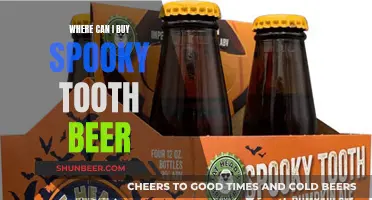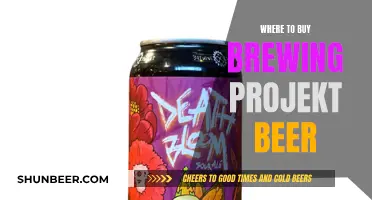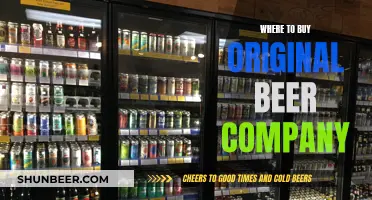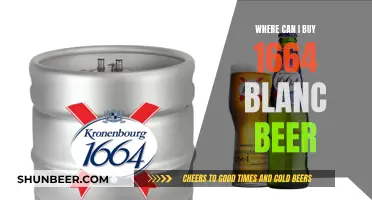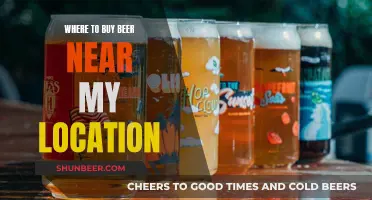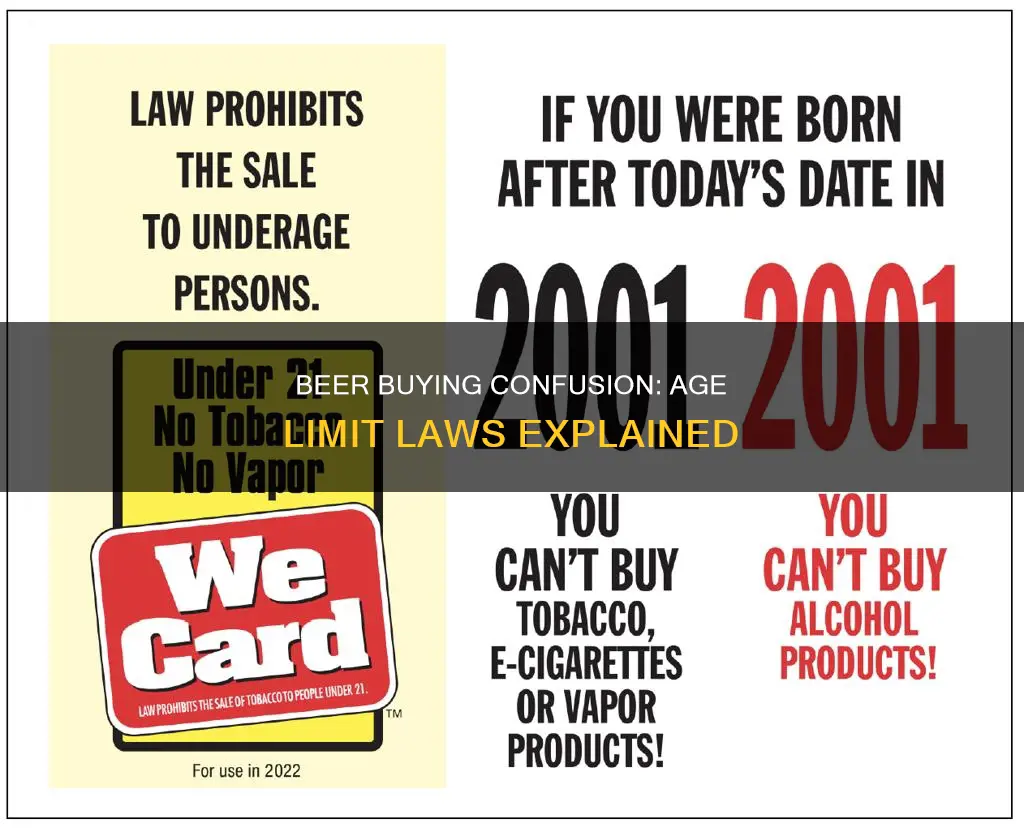
Non-alcoholic beer has become increasingly popular in recent years, with people turning to it for the taste of beer without the intoxicating effects. Despite containing little to no alcohol, there are still laws in many places that prohibit minors from purchasing these beverages. In the United States, the legal drinking age is 21, and while non-alcoholic beer is not explicitly covered by this legislation, individual states have differing laws regarding its sale to minors. Some states, such as Oregon, West Virginia, and Wyoming, prohibit the sale of non-alcoholic beer to those under 21, while others, like Ohio, allow it for those over 18. The laws can be complex and vary significantly across states, with some states permitting consumption by minors with parental supervision or permission. With no federal law governing this issue, the regulations depend on the specific state and even county or city laws. Retail stores and online sellers often require customers to be at least 21 to avoid legal complications and potential fines.
| Characteristics | Values |
|---|---|
| ABV | Less than 0.5% |
| Legality | Depends on the state law |
| Legality in the UK | Yes |
| Legality in the US | No |
| Legality in Ohio | Yes, if over 18 |
| Legality in Oregon | No, if under 21 |
| Legality in West Virginia | No, if under 21 |
| Legality in Wyoming | No, if under 21 |
What You'll Learn
- Non-alcoholic beer is not 100% alcohol-free
- The laws surrounding the purchase of non-alcoholic beer vary across US states
- The laws surrounding the consumption of non-alcoholic beer vary across US states
- Retailers may deny the sale of non-alcoholic beer to minors to avoid legal repercussions
- Some researchers argue that non-alcoholic beer could be a gateway to drinking for children

Non-alcoholic beer is not 100% alcohol-free
In the United States, you must be 21 to purchase alcoholic beverages. But what about non-alcoholic beer? Can minors buy these drinks, and are they truly alcohol-free?
Non-Alcoholic Beer Laws in the US
The laws surrounding the purchase of non-alcoholic beer vary across the US. In some states, minors cannot purchase alcohol but can consume it under certain conditions, such as having the permission of a parent or guardian who is over 21. However, the laws regarding non-alcoholic beer are more complex. While each state has set the legal drinking age to 21, they have different definitions of what constitutes an alcoholic beverage.
Non-alcoholic beers are regulated by the Federal Alcohol Administration Act (FAA), which does not indicate an alcohol by volume (ABV) minimum. In other words, non-alcoholic beers are still considered malt beverages and are subject to the same regulations as alcoholic beers, even though their alcohol content is below the legal limit.
The answer depends on the state. In Ohio, minors over the age of 18 can purchase non-alcoholic beer. However, there are states where minors cannot purchase non-alcoholic beer, including Oregon, West Virginia, and Wyoming, for beers with 0.5% ABV and above. In other states, the laws are undefined or not straightforward, such as in Alabama, where the sale of non-alcoholic beer is prohibited in dry counties but not regulated in wet counties.
No, non-alcoholic beer is not completely alcohol-free. In the US, beverages with less than 0.5% ABV can be labelled as "non-alcoholic". This means that non-alcoholic beers can contain small amounts of alcohol, similar to some fruit juices, breads, and ripe bananas. While it is not enough alcohol to cause intoxication, it is important to note that non-alcoholic beer is not entirely free of alcohol.
Some brands, such as Heineken and Budweiser, have started producing alcohol-free beers with 0.0% ABV. These beers are genuinely alcohol-free and provide an option for those who want the taste of beer without any alcohol content.
Buying Beer at Williams-Brice Stadium: What's the Deal?
You may want to see also

The laws surrounding the purchase of non-alcoholic beer vary across US states
In the United States, the Twenty-first Amendment grants each state and territory the power to regulate intoxicating liquors within their jurisdiction. While the National Minimum Drinking Age Act of 1984 set the minimum drinking age to 21 across all 50 states, it does not restrict the drinking or possession of alcohol in private. This means that the laws surrounding the purchase of non-alcoholic beer by minors are determined at the state level, and they vary.
Some states, such as Ohio, permit minors aged 18 and above to purchase non-alcoholic beer. Other states, such as Oregon, West Virginia, and Wyoming, prohibit the purchase of non-alcoholic beer by minors for beverages with 0.5% ABV and above. In Alabama, the sale of non-alcoholic beer is not regulated in wet counties, but it is prohibited in dry counties.
Given the complexity of these laws, many retail and online stores require customers to be at least 21 to avoid falling victim to any legal loopholes. Additionally, some stores may have stricter policies and might not sell non-alcoholic beers to individuals under 21 to avoid the risk of fines or losing their alcohol license.
While the laws vary at the state level, it is also important to note that counties and cities can modify age restrictions, and retailer policies may also differ. Therefore, it is crucial to check the local regulations and retailer policies before attempting to purchase non-alcoholic beer as a minor.
Buying Beer in Missouri: Morning Restrictions and Laws
You may want to see also

The laws surrounding the consumption of non-alcoholic beer vary across US states
In most states, there are no age restrictions on the purchase of non-alcoholic beer. However, some states, such as Oregon, West Virginia, and Wyoming, prohibit the sale of non-alcoholic beer to minors. Other states, like Alabama, do not regulate the sale of non-alcoholic beer in wet counties but prohibit its sale in dry counties.
Even within states that allow minors to purchase non-alcoholic beer, there may be retailer policies in place that restrict sales to those under 21. Additionally, some retailers choose to set their own age limits, requiring purchasers to be at least 18 years old.
The laws surrounding the consumption of non-alcoholic beer also vary by state. In some states, minors are permitted to consume non-alcoholic beer with parental permission or in the presence of a parent or guardian. In other states, consumption of non-alcoholic beer by minors is prohibited.
The lack of consistent age restrictions on the purchase and consumption of non-alcoholic beer has sparked debate among health researchers. Some argue that these beverages could serve as a gateway to drinking for minors and call for clear and consistent age limits across all states. Others in the industry argue that self-regulation is sufficient and that government involvement is unnecessary.
The varying state laws and retailer policies regarding non-alcoholic beer highlight the importance of understanding the local regulations and retailer policies before purchasing.
Beer Availability at Illinois Basketball Games
You may want to see also

Retailers may deny the sale of non-alcoholic beer to minors to avoid legal repercussions
The laws surrounding the sale of non-alcoholic beer to minors in the United States are complex and vary from state to state. While the National Minimum Drinking Age Act of 1984 prohibits the sale of alcoholic beverages to anyone under the age of 21, it does not specifically address non-alcoholic beer. This is because non-alcoholic beer is not considered an alcoholic beverage by the federal government, as long as it contains less than 0.5% alcohol by volume (ABV). Despite this, non-alcoholic beers are still regulated by the Federal Alcohol Administration Act, which classifies any malt beverage as alcohol, regardless of its ABV. This creates a legal grey area that allows individual states to set their own rules.
In most states, there are no age restrictions on the purchase of non-alcoholic beverages, and minors are allowed to buy them. However, some states, such as Oregon, West Virginia, and Wyoming, prohibit the sale of non-alcoholic beer to minors if it contains 0.5% ABV or higher. Other states, like Ohio, require buyers to be over the age of 18. To avoid falling victim to legal loopholes, many retailers choose to deny the sale of non-alcoholic beer to minors altogether, even in states where it is legal.
The reasoning behind restricting the sale of non-alcoholic beer to minors is twofold. Firstly, non-alcoholic beer still contains a small amount of alcohol, and retailers may want to avoid any potential liability associated with selling a product containing alcohol to minors. Secondly, some researchers argue that non-alcoholic beer, wine, and liquor could serve as a gateway to drinking for minors, as they often mimic the taste, smell, and cultural experience of their alcoholic counterparts. While there is currently no evidence to support this claim, some retailers may choose to deny sales to minors as a preventive measure.
The legal landscape surrounding the sale of non-alcoholic beer to minors is complex and ever-evolving. Retailers must stay informed about the laws and regulations in their specific state and make decisions that align with their values and policies. By denying sales to minors, retailers can reduce their legal risk and take a proactive approach to public health concerns.
American Access to 4 Pines Beer: Yes or No?
You may want to see also

Some researchers argue that non-alcoholic beer could be a gateway to drinking for children
In the United States, alcoholic beverages can only be purchased by individuals aged 21 and above. However, this rule does not apply to non-alcoholic drinks, including non-alcoholic beer (NAB). NAB is similar to conventional beer in terms of taste and how it is made, but it is advertised as a beverage containing no alcohol. While NAB is not completely alcohol-free, it typically contains less than 0.5% alcohol by volume (ABV), which is not enough to cause intoxication.
The laws surrounding the purchase of NAB by minors vary across different states. While some states allow minors to purchase NAB, others prohibit it. For example, in Ohio, minors above the age of 18 can buy NAB, while in Oregon, West Virginia, and Wyoming, NAB is restricted to those aged 21 and above. This inconsistency in state laws has led to confusion and loopholes, with most retailers opting to set their own age restrictions to avoid legal complications.
The lack of clear and consistent age limits for NAB has sparked debates among researchers and health professionals. Some argue that NAB could serve as a gateway to drinking for children and adolescents. They compare it to candy cigarettes, suggesting that it might normalize and increase interest in consuming alcoholic beverages. This concern is particularly relevant given the recent example of e-cigarettes, which led to an uptick in tobacco use among younger generations. Researchers also highlight the potential risk of familiarity with certain beverage brands, which could lead to future purchases of their alcoholic counterparts.
On the other hand, opponents of government regulation argue that the availability of NAB helps individuals who are trying to reduce their alcohol consumption for health reasons. They believe that the industry can self-regulate through targeted marketing and store placement, ensuring that these products are clearly aimed at adults. Additionally, some retailers have taken it upon themselves to set age limits and enforce ID checks for NAB purchases.
While the debate continues, it is important to note that NAB consumption by minors is not entirely unrestricted. In most states, parental supervision or permission is required for minors to consume NAB. This allows for family bonding and open discussions about alcohol and addiction, which can be protective factors against substance use disorders.
Yuengling Beer: Arizona Availability and Distribution
You may want to see also
Frequently asked questions
It depends on which state you're in. While federal law prohibits the sale of alcoholic beverages to those under 21, non-alcoholic beer is not subject to this restriction. However, some states have their own laws prohibiting the sale of non-alcoholic beer to minors.
No, non-alcoholic beer typically contains up to 0.5% alcohol by volume (ABV). While this is not enough to cause intoxication, it is still technically classified as an alcoholic beverage in some states.
In most states, it is legal to drink non-alcoholic beer if you are under 21, as long as you have parental permission and/or are in the presence of a parent or legal guardian. However, this may vary depending on the state and the specific circumstances.


